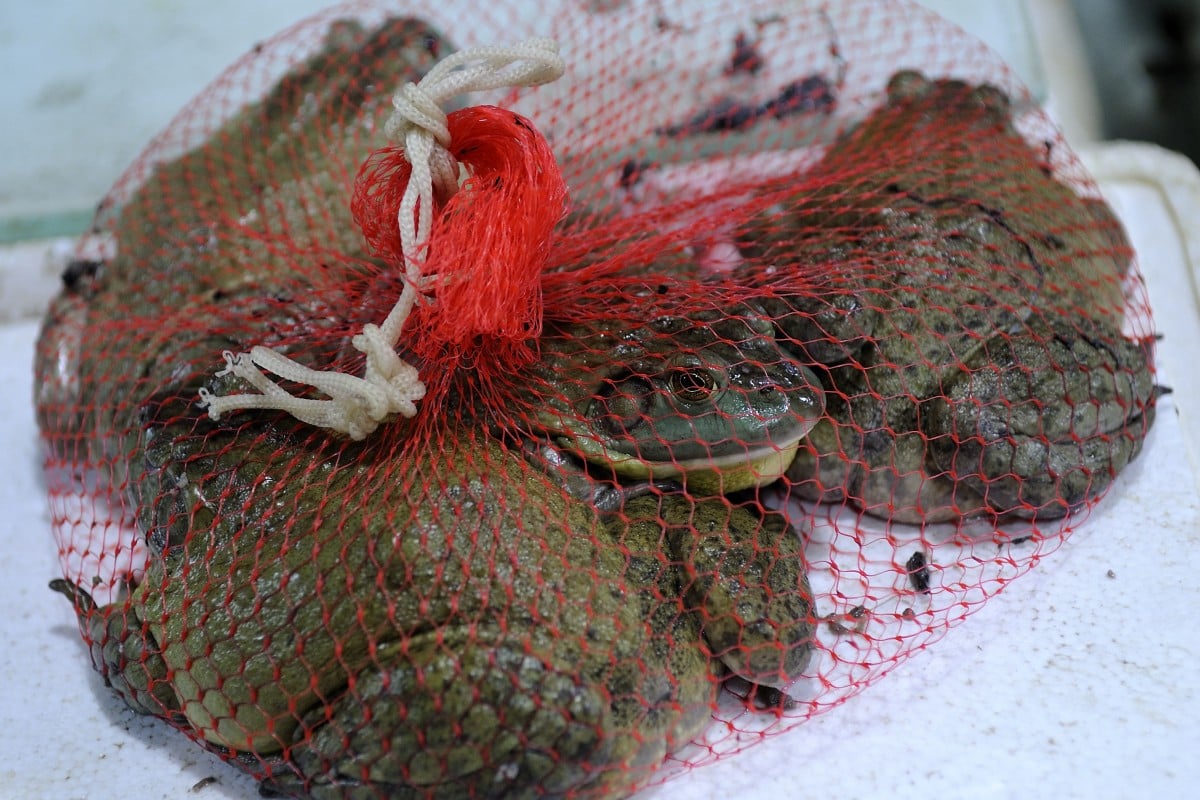Outlawing the industry would be unscientific and irrational, breeders say before umbrella association apologises for comments
Legislators set to fast-track prohibition on multibillion-dollar wild animal sector
22 Feb, 2020

Frogs are a multibillion-dollar business in China. Photo: Biosphoto
A Chinese wildlife industry and conservation group has apologised for public opposition voiced by frog breeders to plans to outlaw the multibillion-dollar wild animal trade in the aftermath of the coronavirus epidemic.
China’s top legislators will meet next week to fast-track a ban on the trade and consumption of wild animals, following Chinese President Xi Jinping’s call to review laws on wildlife protection.
The coronavirus epidemic is thought to have emerged from a seafood and meat market in the central Chinese city of Wuhan where wild animals were also sold.
Last weekend, defiant frog breeders on a subcommittee of the China Wildlife Conservation Association, an umbrella trade group, made their case against the ban in an online article arguing that it was part of a valuable tradition.
The group said it was “an arbitrary, unscientific and irrational move to put a blanket ban on all wildlife animal consumption just because of one viral outbreak”.
“Human demand for wildlife products has never ceased, and in a sense, it is an indispensable need,” the article said.
The group also drew contrasts with other animal-related disease outbreaks such as avian flu, mad cow disease and African swine fever.
“We don’t ban poultry breeding because of avian flu, do we?”
But the umbrella association – which says it promotes sustainable development of the trade – quickly issued a public apology on Tuesday for the frog breeders’ comments and disbanded the subcommittee that released the article.
The wildlife trade is estimated to be a 520 billion yuan (US$74 billion) business in China, employing more than 14 million people and breeding a wide variety of exotic species from quail, to ostriches, snakes, crocodiles and civets.
More than half of those in the trade – about 7.6 million people – work in the fur and leather industry valued at about 390 billion yuan. The rest – more than 6.2 million people – help breed and process animals for food.
China’s retail and tourism taking hits as online services find opportunity amid coronavirus epidemic
A 2017 report by the Chinese Academy of Engineering estimated that frog breeding alone employed about 1 million people in a 50 billion yuan business in 2016.
In some of China’s most impoverished regions such as Guangxi, wildlife breeding is a key poverty alleviation strategy.
But there is also public support for a ban on the trade as more lives are claimed by the epidemic.
In an online survey organised by several conservation groups and conducted between January 28 and February 14, over 97 per cent of 100,000 respondents supported a total ban on the industry, the China Business News reported on Friday.
No comments:
Post a Comment